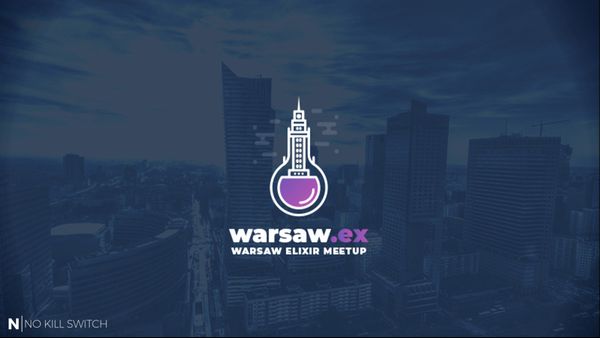I am a notorious cheater.
- in 2001 I've betrayed Java for .NET
- until late 2006-2007 I've been involved in several, stormy romances with unmanaged C++ (we had some past already ...)
- around 2011 I began secret meetings with JavaScript, a lot of passion & screaming was involved
- in 2013 I went full-slut-mode by pretty much ceasing relationship with .NET (we'll still friends, with benefits ...) & being seen in the company of many different programming languages (mainly Scala & Go)
- in April 2014 I've met Erlang, it was the love at the first sight, but we were clearly not meant to be together, but ...
- ... in the beginning of 2015 Erlang has introduced me to her younger sister - Elixir. We're together since then.
People keep asking me: what's the point in moving from a well-acknowledged, resource-rich, popular & market-demanded platform like .NET to such a niche, that almost no-one has heard about?
And that's what this blog post is about.
Why did I decide to go out of the comfort zone?
First, I don't aim to be the coolest kid on the block by knowing the biggest number of languages or frameworks. Actually, being able to declare a variable in 20 different dialects does not make us better craftsmen by itself. If you know well (let me emphasize that again - well) one language / platform of reasonable versatility (like Java or C#/.NET), you can pretty much cover majority of so-called market. What really matters in that case is how good you actually are in using this one, particular language / platform; the choice is usually far less crucial than you may think.
But let me quote Nathan Marz - creator of Apache Storm:
Programming languages have huge effect on your ability to grow as a programmer.
— Nathan Marz (@nathanmarz) October 31, 2015Different languages / platforms represent different paradigms, introduce different patterns / ideas for solving similar problems with different tools & approaches. The point is not to round-robin through all of them (new day = new framework ...), but to learn the differences, cognitively expand your thinking horizon, broaden your palette of techniques & make your own opinions on various problems & their most viable solutions.
Sometimes, you just have an urge to cover more ground. In my case I wanted to try lightweight client apps, so I've decided to try JavaScript-based SPAs. Similar thing has happened when I have been tempted by ultra-rich JVM-friendly Hadoop ecosystem that doesn't really get along with Microsoft stack - I needed a language that compiles to JVM bytecode and at the same time it is not Java ;)
Why Elixir and not something else?
Due to three reasons:
- It offers what I wanted from Scala, but it has failed to deliver
- It offers what I wanted from Erlang, but I've found it "not digestible enough"
- Elixir community is freakin' awesome
Let me elaborate a bit more on that:
My first impression about Scala was quite typical:
This is a modern language I've always wanted - mixes all the best features of other languages in a concise, coherent boundaries!
Wow, Functional Programming can be really cool, without giving up object-oriented foundation!
I can use all the JVM-based goodies without dirtying my hands with Java, neat!
OMG, actor model & Akka are awesome!
All these syntactic sugar pearls ... so yummie & fun-packed ...
What has happened next was typical (for Scala) as well.
- syntactic sugar has appeared to be massively overdosed
- syntax is optimized for writing, not for reading code which is a major, inexcusable flaw
- SBT is rather a Slow Build Tool, than a Simple Build Tool
- yes, I can use any JVM binaries, but it's not really Scala anymore then (tbh, it's still not nearly as bad as in F# VS C# code case)
- functional-OO hybrid doesn't feel that good as it was meant to be
Don't get me wrong, I still love Scala, but it seems broken in a way that's really, really hard to fix ;/
What about Erlang? It's not hard to figure that out: proven language fit for a purpose, incredible capabilities as a testimony of nearly-prophetic intentions of its creators, but ... it feels extremely dated in terms of tooling, conventions, syntactic concepts, etc. In other words - if you're about to create telephony application for some TelCo, go for it. But if your aim is something as extraordinary as a web app, well ...
Mixing Erlang with Ruby sounded like the dumbest idea ever, but ... surprisingly it has worked. Elixir has all the advantages of Elixir (& many pros of Scala), but it is devoid of almost all their flaws.
Still, it wont' solve your problems "auto-magically". These two quotes by Andrzej Śliwa describe it perfectly:
the main concern about #phoenix/#elixir_lang bundle is that people believe that will auto-magically make them a better developer (1/2) ...
— andrzejsliwa (@andrzejsliwa) October 29, 2015instead of start changing way of thinking/designing in process oriented, they are looking for new tools with support to old habits. (2/2)
— andrzejsliwa (@andrzejsliwa) October 29, 2015The next post in the series can be found here.
In the following post(s) I'll try to answer the following questions:
- Is Elixir for everyone?
- Should we expect it becoming the Next Big Thing?
- Why I want to be like Mr.T?
- Commercially speaking - does it make sense to switch to Elixir?
- Does a life without Visual Studio & ReSharper make any sense at all?
Pic: © aga7ta - Fotolia.com








